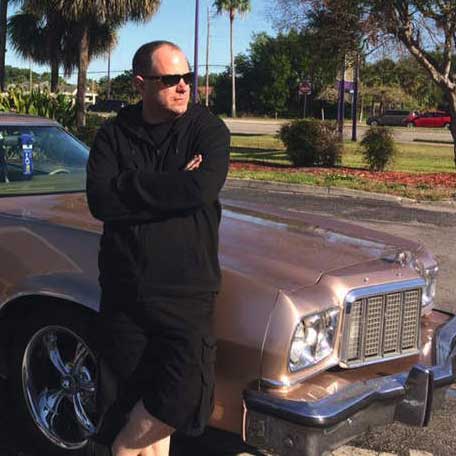With the global pandemic dominating the news over the past two years, it’s easy to forget prior events. But 2018 was a particularly nauseating year for the worst in international politics. In the USA, work began on the Trump’s border wall with Mexico. Refugee immigrant children were separated from their parents at a border detention centre. In the UK, former British double agent Sergei Skripal and his daughter were poisoned by a Russian nerve agent. Saudi dissident journalist Jamal Kashoggi was assassinated.
The conversations that Garbage lead singer Shirley Manson was having with friends and family around such news stories became so intense and regular that they inevitably spilled into her songwriting. And it’s against that backdrop of division, hatred, greed, corruption and moral bankruptcy that drove the band’s seventh studio album, No Gods, No Masters. It’s not only one of the best albums of their career, it was also the single most topical rock album of 2021.
Speaking out isn’t really anything new for Garbage, who are still operating with their original line-up of Butch Vig, Steve Marker, Duke Erikson and Manson. With a refreshingly blunt potty mouth, Manson is an inspirational feminist who hasn’t minced her words since Garbage formed in 1993. Early songs like Stupid Girl and The Trick Is To Keep Breathing proved she could adroitly convey feminist topics within Garbage’s ice cool guitar-led, electronica-peppered alt.rock.
In the brooding A Woman Destroyed on the new album, she addresses the MeToo movement, specifically how the media reports on whether women may have encouraged attacks, rather than what caused them in the first place.
Isn’t it demoralising having to keep re-treading the same topics over twenty-five years later?
“No, because I feel that more and more people have added their voices as the years have gone by,” states Manson. “I was described in the nineties as a crazy, angry feminist. And I was quite unusual in that, it wasn’t commonplace.”
Ironically, the album title itself is a 200-year-old rebellion slogan used by anarchists, feminists and trade unionists who have been struggling with the same injustices throughout the intervening years.
“Every now and then I get a little despondent that we’re still having to go over this old ground over and over again,” says Manson, “but I feel like, incrementally, each decade that follows is very fractionally better. I believe in evolution.”
It’s a belief that’s driven Garbage’s career. Their astute refusal to align with the post-grunge and Britpop music fads of the mid-90s has seen their brand of alt.rock mature and evolve beyond their peers stuck on the retro reunion circuit. Garbage’s success is thanks to their ability to make a point or create a dialogue without confrontation or self-pity; No Gods No Masters is both uplifting and touching, belying the seriousness of its lyrical themes.
During making the album, Garbage became obsessed by the timeless sound of Roxy Music. Manson also cites Gary Numan and The Cure as influences on the record. With all band members bringing something different to the table, the result is a melting pot of influences that straddles the best of late 20th-century and early 21st-century rock.
Manson counts both Deborah Harry of Blondie and Lauren Mayberry of Chvrches among her friends. It’s a perfect example of an influence that Garbage value, but also how they have in turn informed a new generation of bands.
“All musicians, whether they like it or not, are tied to each other,” says Manson, who wears her wisdom lightly. “We’re all out there vying with each other for the connection of an audience, and that puts you all in the same swimming pool. And when you’re all in the same pool, you’re going to brush up against one another.
"I’m inspired by anyone who’s willing to push up against the status quo and try and shake the tree. I do not want to go to my grave feeling like I’ve watched all this injustice unfold in front of me and never having raised my voice."
So, 2021 was a busy year for Garbage. Manson’s podcast The Jump is currently in its third season. On one of the biggest US tours of the summer, Garbage performed 30-odd dates. They also recently reissued their third album Beautiful Garbage for its 20th anniversary. Originally released just two weeks after 9/11, it was overtaken by the chaos of the tragedy, as well as a shift in the musical landscape. In Manson’s words, it “died on the vine” and the fallout put the future of Garbage in doubt.
“I honestly thought that was the end of my career and that we were never going to recover,” she says, two decades on. “It took a long time for us as a band to regain our equilibrium and our confidence and our joy. Joy is of monumental importance when you’re an artist, particularly in an industry that has become so hard. So to realise that you’ve regained something at this late stage in your life and career feels like unexpected treasure.”
“I was quite surprised by the reaction,” says Manson of the positive reviews that the album received. “To be perfectly frank, we’ve reached a point in our career where we just expect the worst. We are always quite surprised when we get a positive reaction. It’s not something we really expect or are accustomed to.”
No Gods No Masters and the reissue of Beautiful Garbage are both out now.

